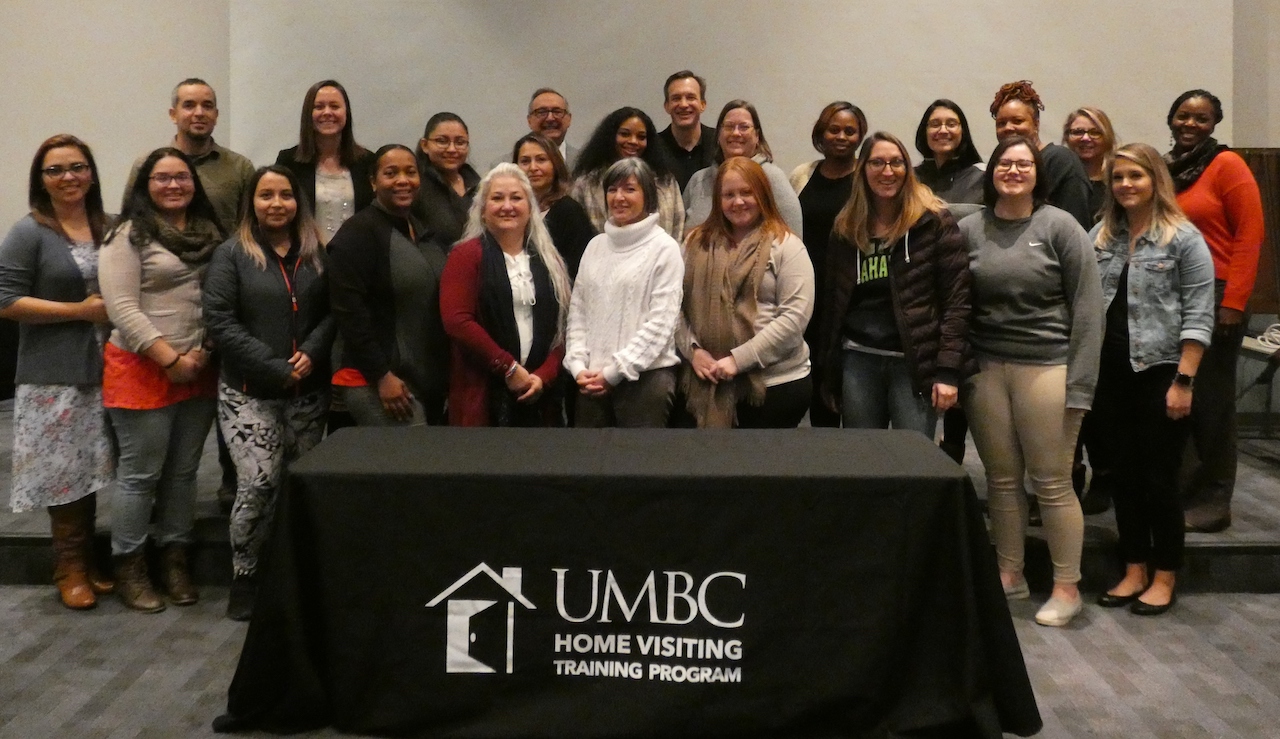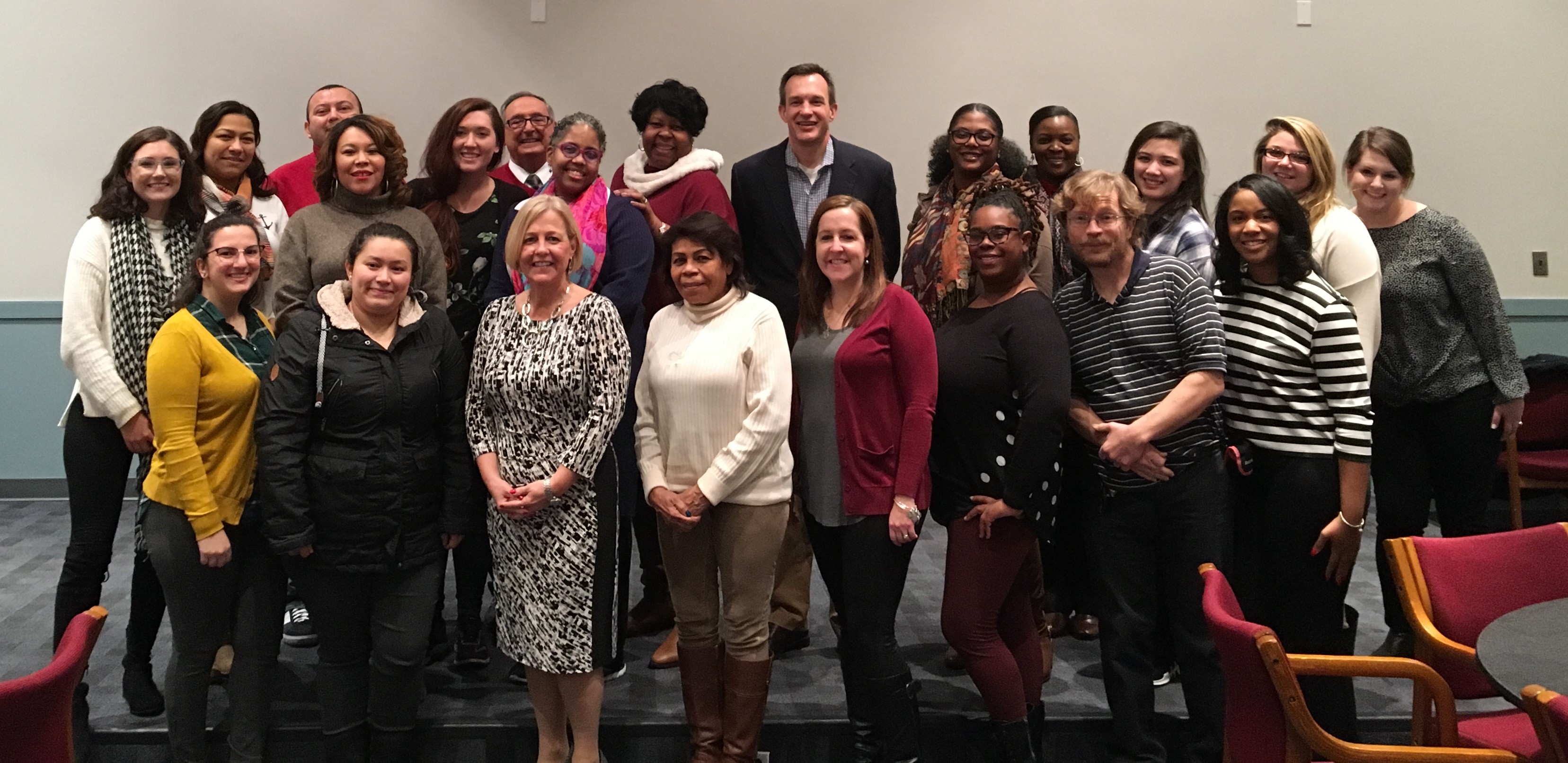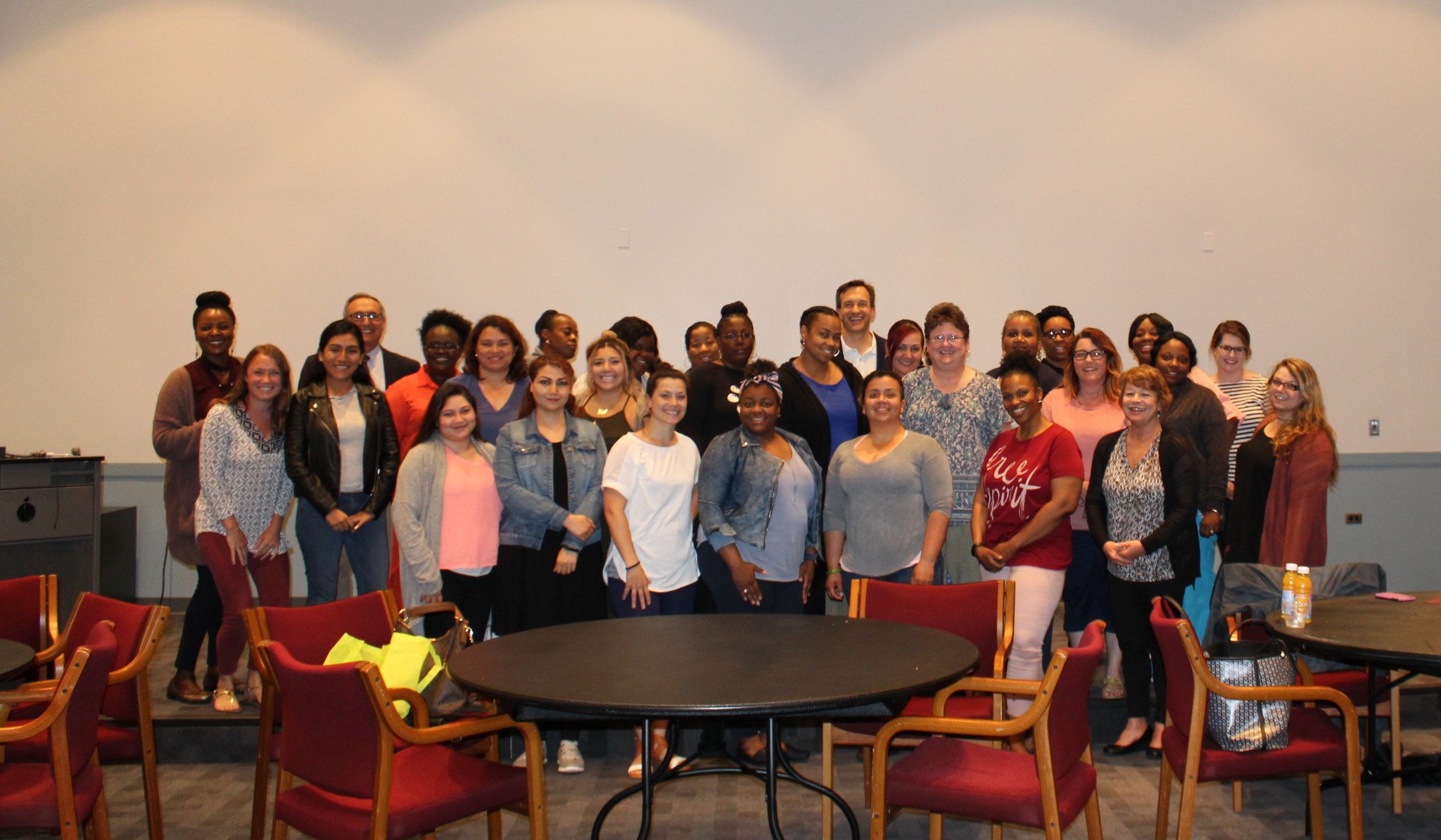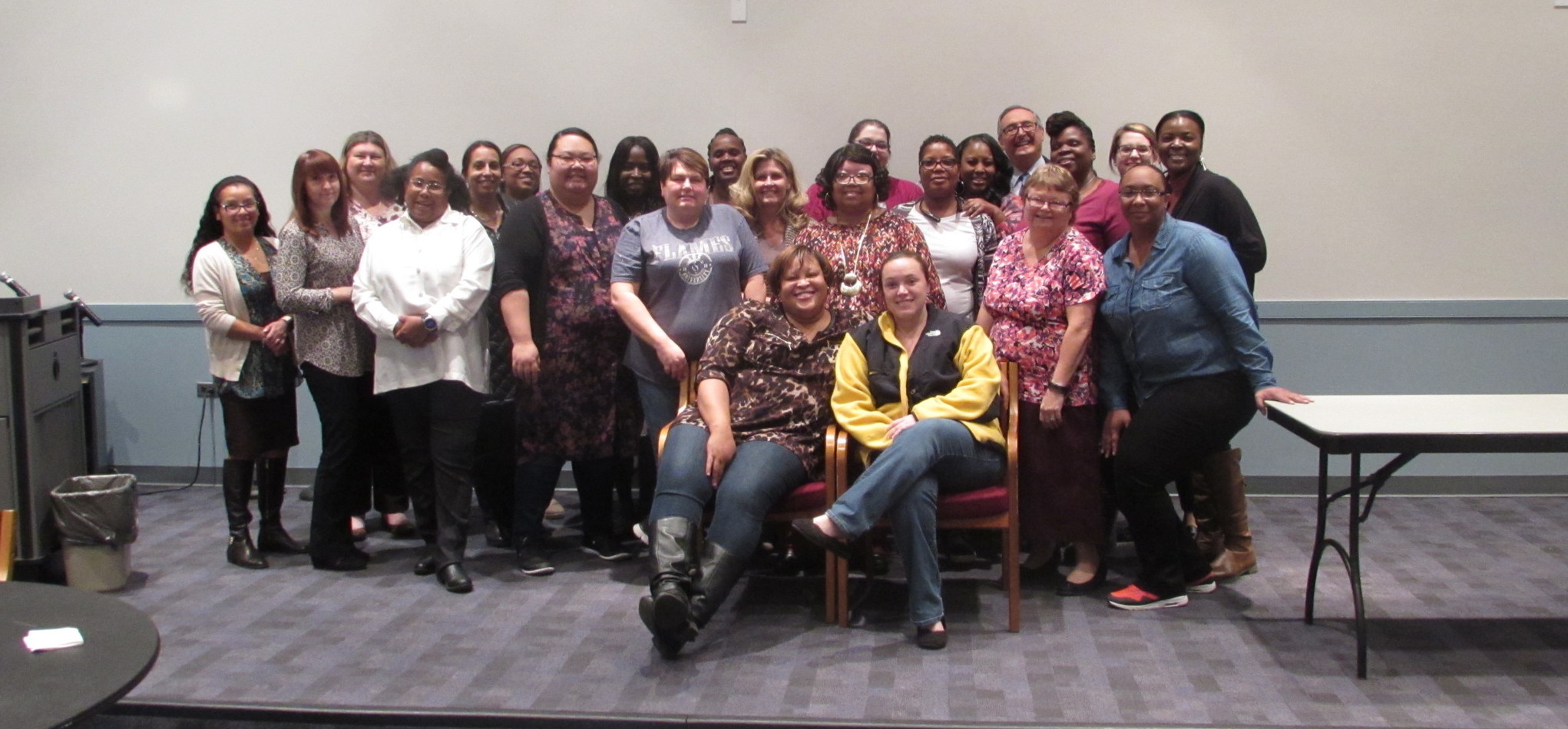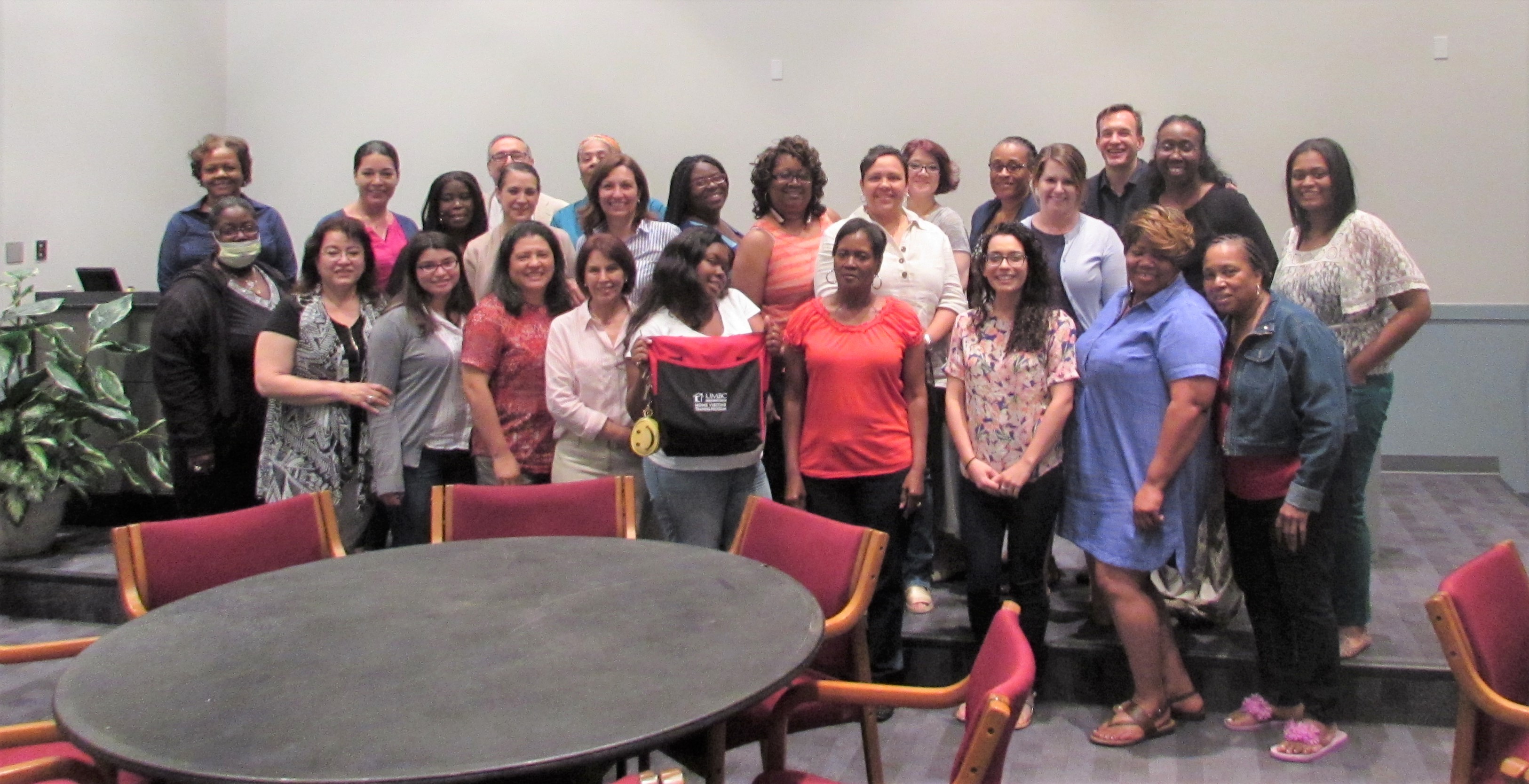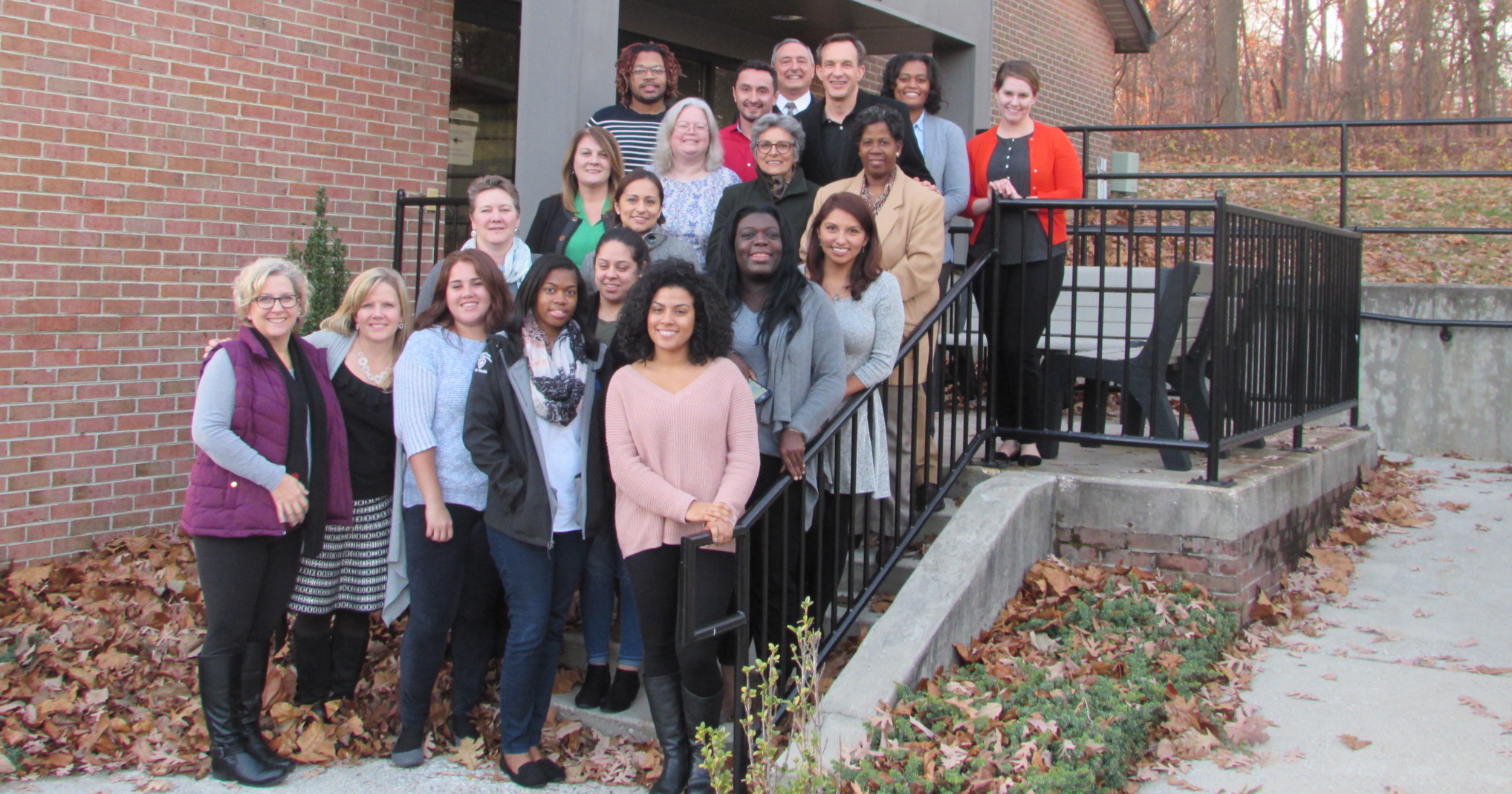Overview
The UMBC Home Visiting Training Certificate Program (HVTCP) is a six module hybrid series that is offered over a twelve-week period. The training program will kick off with a virtual one hour introduction session where trainees will meet UMBC HVTCP staff who will outline the expectations of the training program. Training days are held in person at UMBC's South Campus, covering two (2) topics a day, for a total of three (3) full days of training per cohort. Participants will be required to watch a series of training videos during the month prior to attending the in-person day. Trainees may also be asked to complete knowledge checks, handouts, and other activities corresponding with the remote training videos. The following topics are covered in our training program:
- Communication
- Culture
- Parenting
- Healthy Relationships
- Mental Health
- Substance Use
More details about each module can be found under curriculum (https://homevisitingtraining.umbc.edu/curriculum)
Two types of professionals participate in the training: home visitors and their supervisors from various jurisdictions across the state of Maryland. Participants will receive one of two certificates:
- A Home Visitor Certificate (43 hours) or
- A Home Visitor & Supervisor certificate (45 hours).
- Please note these certificates are NOT CEU's.
We suggest that participants in our training have at least 6 months of home visiting experience. We conduct two trainings per year (spring & fall) at the training center at UMBC South Campus Research & Technology Park.
Registration OPEN!
Registration for our Spring 2026 cohort is open! All trainings are conducted at UMBC's South Campus Research & Technology Park unless otherwise noted. UMBC's South Campus Research & Technology Park: 1450 S. Rolling Road, Halethorpe, MD 21227 (for GPS purposes you can also use Arbutus as the city). This location is not on the main campus but is less than a mile away.
February 4th: Intro/Kick off Meeting (virtual)
February 25th: Supervisor Only Meeting (virtual)
March 4th: Communication & Culture
April 8th: Parenting/Child Development & Healthy Relationships
May 5th: Mental Health & Substance Use
Cost -
Currently, this training is free of cost and is supported by the Health Resources and Services Administration (HRSA) of the U.S. Department of Health and Human Services (HHS) under grant number HRSA D89MC26357, “Maryland State Maternal, Infant, and Early Childhood Home Visiting.”
Additional Trainings -
Please note we are unable to offer CEU's for social work or other professional organizations at this time
A regional training for Home Visitors, DHS Child Welfare, Reunification, and Protective Services, and Infant and Toddlers program staff to be more effective and helpful to substance exposed mothers and children. The regional trainings allow workers in related areas to better connect and collaborate to benefit and serve substance exposed mothers and children. The training includes an online component of seven (7) modules which participants must complete within 2 weeks prior to the one day in person training.
Content areas covered in both the online and in person training include:
Understanding issues of substance exposed mothers, infants, and children from a multi-professional, multidisciplinary perspective.
Developing trauma-informed perspectives and conversation skills, and understanding compassion fatigue and its impact on one's ability to work with populations that have experienced trauma.
Understanding the challenges of addiction and dynamics of recovery (slips, relapse, recycling, using stages of change perspective).
Developing better understanding of treatment options, the role of courts and legal system, and child welfare.
Currently, this training is not open for public registration. Please check back for more information on additional training opportunities.
This one-day training provides a framework for coaching home visitors. Coaches are trained in reflective practice, negotiation, and providing feedback, and are given a coaching manual to guide sessions over a 12 week period.
Content areas covered in the in person training includes:
- Defining coaching and explaining how it differs from supervision and other professional roles.
- Discussing the characteristics and benefits of coaching.
- Understanding barriers to coaching and practicing strategies to address common challenging situations.
- Providing feedback and evaluating performance through the use of motivational communication skills.
- Preparing for and implementing coaching manual.
This two-day training emphasizes a collaborative process for goal planning with families who are home visited. GPS focuses on using motivational communication to set, plan, implement, and revise/evaluate SMART goals. Coaching of the skills provided in this training occurs over a 12 week period to improve skill use and retention.
Content areas covered in both the online and in person training include:
- Foundations of goal setting (SMART goals, characteristics of good goals, differentiating goals from values).
- Applying the stages of change model and motivational communication strategies to the goal planning process to increase understanding of how people change.
- Developing a better understanding of the goal planning process and collaborating with a family to meet their goal by recognizing family and caregiver strengths, barriers, and resources.
- Identifying challenges to implementing goals and strategies to overcome these challenges.
- Providing feedback to evaluate and revise goals, as well as understanding common challenges that interfere with GPS.
- Practicing goal setting and planning skills with role plays.
This training has not been offered since 2019. If you are interested, please contact us.
Evaluation
As part of training, home visitors and supervisors participate in an evaluation. This is embedded in the 42 hours of in-class curriculum content and will involve completing short surveys and interviews at the beginning and end of each training day. It may also consist of completing a more time-involved evaluation (e.g., responding to standardized mothers as if in a real home visiting scenario) at the beginning of the first day of training and end of the last day. Receiving a certificate is contingent upon completing all the course activities and course evaluations and demonstrating adequate performance during the course of the training programs. These evaluations will also help Training Center faculty and staff to continuously monitor training success.
Title
UMBC Home Visiting Training Certificate Program Graduates
